The Buddhist Roots of Mindfulness Retreat
The Buddhist Roots of Mindfulness Samye Ling Retreat with Choden and Alan Hughes
There is the option of attending just the weekend or the full retreat. You can attend the weekend in person at Samye Ling or online, but for those wishing to do the 5-day retreat, you will need to attend Samye Ling in person. For Mindfulness Teachers, this will fulfil the BAMBA annual retreat requirement.
The weekend will have a stronger teaching focus while the retreat will have a stronger practice focus with more time spent in meditation together.
Weekend: Friday 28th October – Sunday 30th October 2022 (weekend only £150.00) runs from 19.00-20.30pm on the Friday evening (after soup at 18.00pm) in-between 8.00am and 20.00pm on the Saturday and in-between 8.00am and 15.00pm on Sunday 30th October 2022.
Retreat: Friday 28th October – Wednesday 2nd November 2022 (retreat £350.00 payable in monthly instalments) runs from 19.00pm on the Friday evening (after soup at 18.00pm) and finishes at 15.00pm on Wednesday 2nd November 2022
Please contact info@mindfulnessassociation.net to book your place on the Weekend or the Retreat.
Please book your accommodation and meals for the weekend directly with Samye Ling by emailing reception@samyeling.org. They will need to know the dates that you would like to stay, what room you would like (please click here to see the room types and prices), your name, and the name of the second person if you are booking a twin room, your address, phone number and preferred email address for the booking. No room bookings can currently be made via the Samye Ling website.
For those attending in person, take time out from your busy life to relax in the peaceful, healing environment of Samye Ling. Both the weekend and retreat will include teachings and meditation instructions, sitting and walking meditation, nature walks and guided tours of Samye Ling and its beautiful temple. There will also be periods of silence to deepen your practice.
The focus of the weekend and retreat will be to explore the Buddhist roots of mindfulness. As we all know, the practices of secular mindfulness derive from Buddhism. This is an opportunity to understand and explore where these practices came from as well as their wider context. This will give added vitality and depth to your practice.
We will explore the following topics:
The Four Noble Truths – this is the first teaching of the Buddha that looked at how we all suffer in life, yet if we face our suffering honestly we can uncover its causes and find a path to the freedom and peace even in the midst of pain and difficulty. All mindfulness practice is rooted in this basic understanding.
The Four Foundations of Mindfulness – these are: mindfulness of the body, mindfulness of feelings, mindfulness of mind, and mindfulness of Dharma. In order for your practice to grow and deepen it is important to understand and apply these four essential components of mindfulness.
Cultivating Compassion – As a way of deepening the compassionate holding that is so important for mindfulness practice, we will offer some visualisation practices derived from Tibetan Buddhism such as the Golden Light of Universal Compassion, the Three Healing Lights and the Buddha Within.
There is the option of doing just the weekend or the full retreat. The weekend will have a stronger teaching focus while the retreat will have a stronger practice focus with more time spent in meditation together.
Try a taster practice from the course below:
